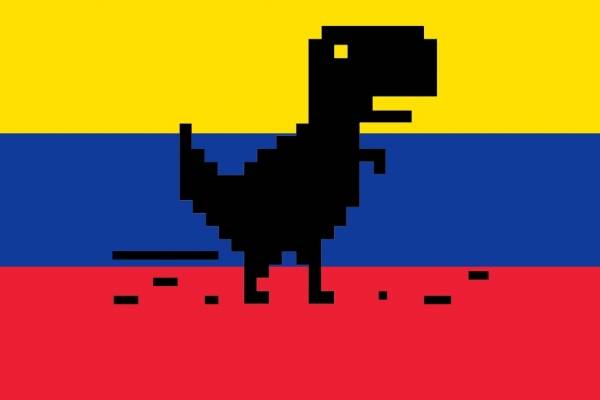Govt nationalized Venezuela’s internet. Its now slowest in the world
Wrinten by our Venezuela correspondent.
Although it is possible to buy a fast connection for several thousand bolivars, most Venezuelans – who pay several hundred – consume the internet that recent studies have described as one of the slowest in the world. Indeed, a study by ECLAC determined that it is the worst in Latin America.
According to the Ookla speed measurement company, the average internet speed in Venezuela is the lowest in South America. For its part, the Internet World Stats (IWS) study ensures that the speed averages 1.7 megabits per second (mbps), below Bolivia, with 1.8mbps, and Paraguay, with 3.5mbps. The average connection in the region has 5mbps and the world average is 20mbps.
“Watching a movie, making a videoconference or broadcasting a live event are technologies that most Venezuelans simply do not know,” Luis Carlos Díaz, an expert on the subject of the Gumilla research center, tells BBC World.
The Venezuelan government maintains that its policies have achieved the democratization and massification of the internet in the country.
The so-called Bolivarian revolution has installed just under 300 Infocentros throughout the country with internet access and delivered more than 2 million tablets, known as Canaimitas. Around 44 out of every 100 Venezuelans have access to the internet, according to official figures, a penetration below the regional average, which is 54%, according to the IWS.
In 2014, the government launched an ambitious project called “Wifi for all” that seeks to install free wireless internet networks in more than 2,000 public spaces throughout the national territory. However, a BBC World tour of three central squares in the capital Caracas, the venezuelan Diego Ibarra squares – corroborated a comment from many: the network still does not work at all.
Several telecommunications experts assured BBC World that the cause of the slow internet in Venezuela is reduced to one thing: the lack of investment in infrastructure.
“The internet problem is like the problem of the roads: while the number of users has grown, the roads have not expanded and we have reached a saturation point,” Díaz tells BBC World. “That’s why, for example, on Sunday nights, as there are so many people connected, the internet is so slow,” he says.
Analysts agree that the State has not made a significant investment or allowed private investment to expand the fiber optic network, which is the main structure that allows data flow.
“Since 2008, Venezuela has been lagging behind the rest of Latin America and today we are with Cuba the country with the worst connection,” Iria Puyosa, a Venezuelan researcher at the Latin American Faculty of Social Sciences (Flacso), tells BBC.



